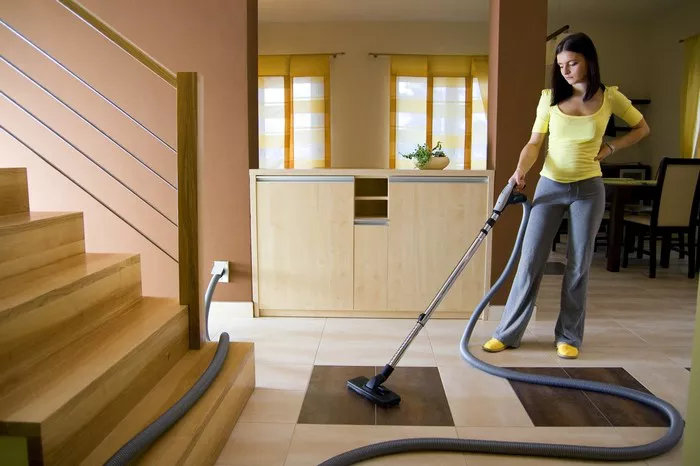Central vacuum systems offer unparalleled convenience and cleaning power for homes and businesses alike. However, with a plethora of options available in the market, selecting the best one for your needs can be daunting. From suction power to filtration systems, various factors contribute to the efficiency and effectiveness of a central vacuum system. This guide aims to provide you with a comprehensive overview of the key considerations to help you make an informed decision.
Understanding Central Vacuum Systems
Central vacuum systems are built-in cleaning systems that consist of a central unit, typically installed in a utility area such as a garage or basement, connected to inlet valves distributed throughout the building. These inlet valves are connected to tubing that runs within the walls and floors, allowing dirt and debris to be suctioned into the central unit. Unlike traditional portable vacuum cleaners, central vacuum systems offer greater suction power and eliminate the need to lug heavy equipment from room to room.
Factors to Consider When Choosing a Central Vacuum System
1. Suction Power: The suction power of a central vacuum system is crucial for efficient cleaning. Higher suction power ensures thorough removal of dirt, dust, and debris from various surfaces. When comparing different models, look for units with higher airflow (measured in cubic feet per minute, CFM) and water lift (measured in inches of water lift, IWL) for superior suction performance.
2. Filtration System: A reliable filtration system is essential for capturing allergens and maintaining indoor air quality. HEPA (High-Efficiency Particulate Air) filters are highly effective in trapping microscopic particles such as pollen, pet dander, and dust mites. Opt for central vacuum systems equipped with HEPA filtration to ensure cleaner and healthier air in your home or workplace.
3. Size and Capacity: Consider the size and capacity of the central vacuum unit to accommodate the cleaning needs of your space. Larger homes or commercial properties may require a more powerful unit with a larger dirt capacity to handle extensive cleaning sessions without frequent emptying. Evaluate the size of your property and the frequency of use to determine the appropriate size and capacity for your central vacuum system.
4. Noise Level: Central vacuum systems vary in noise levels depending on factors such as motor power and insulation. Quieter models are ideal for minimizing disruption during cleaning sessions, especially in residential settings. Look for central vacuum systems with sound insulation features to enjoy quieter operation without compromising on suction power.
5. Accessories and Attachments: Assess the availability of accessories and attachments compatible with the central vacuum system to enhance its versatility and functionality. Attachments such as crevice tools, upholstery brushes, and motorized power heads enable thorough cleaning of different surfaces and hard-to-reach areas. Ensure compatibility with your chosen central vacuum system to optimize cleaning performance.
6. Installation Requirements: Consider the installation requirements and compatibility with your existing property layout. Central vacuum systems may require professional installation to ensure proper placement of inlet valves and tubing for optimal performance. Evaluate installation costs and feasibility based on your property’s layout and structural considerations.
7. Warranty and Support: Prioritize central vacuum systems backed by reliable warranties and responsive customer support. A comprehensive warranty provides peace of mind against potential defects or malfunctions, while accessible customer support ensures prompt assistance in case of inquiries or troubleshooting needs.
Conclusion
Selecting the best central vacuum system involves careful consideration of various factors such as suction power, filtration system, size and capacity, noise level, accessories, installation requirements, and warranty coverage. By understanding your cleaning needs and evaluating these key factors, you can choose a central vacuum system that offers superior performance, convenience, and durability for your home or business.
FAQs
Q1: How do I determine the appropriate suction power for my central vacuum system?
A1: Assess the size of your property and the types of surfaces you need to clean. Larger homes or spaces with carpets may require higher suction power, typically measured in CFM (cubic feet per minute) and IWL (inches of water lift), to effectively remove dirt and debris.
Q2: Are central vacuum systems suitable for allergy sufferers?
A2: Yes, central vacuum systems equipped with HEPA (High-Efficiency Particulate Air) filters are highly effective in trapping allergens such as pollen, pet dander, and dust mites. HEPA filtration ensures cleaner indoor air quality, making central vacuum systems an excellent choice for allergy sufferers.
Q3: Can I install a central vacuum system in an existing home?
A3: Yes, central vacuum systems can be installed in existing homes with proper planning and professional installation. While retrofitting may require additional considerations such as routing tubing through walls and floors, experienced installers can customize the installation to suit your property’s layout and needs.

